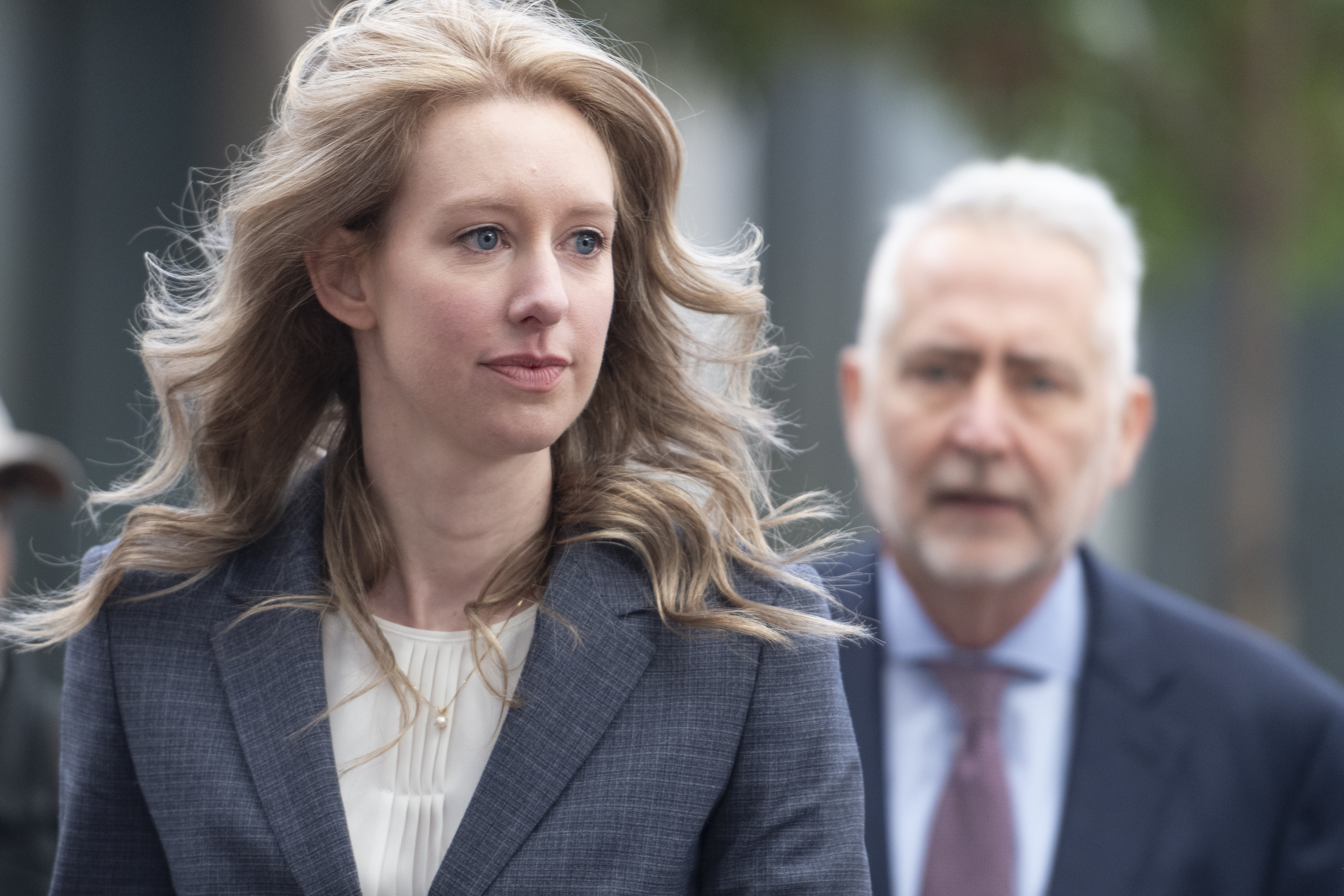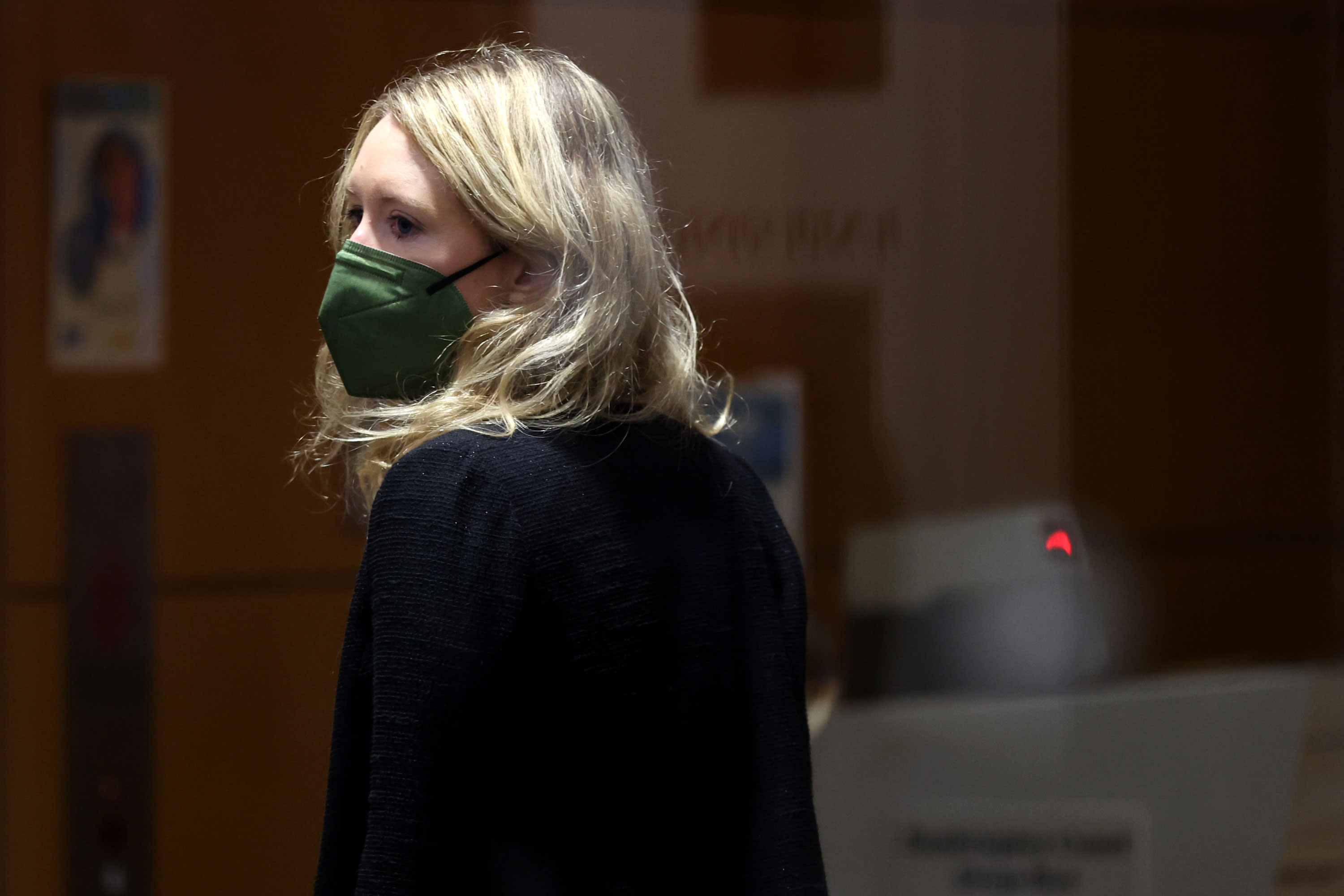Disgraced Theranos CEO Elizabeth Holmes on Friday was sentenced to more than 11 years in prison after she was convicted on three felony counts of wire fraud and one felony count of conspiracy to commit fraud.
U.S. District Judge Edward Davila handed down the sentence to send Holmes, 38, to federal prison for 11.25 years after a 4-hour long hearing. The term is far less than the maximum sentence of 20 years she could have received, but far longer than her legal team’s attempt to limit her incarceration to no more than 18 months, preferably served in home confinement.
She will be required to surrender April 27, 2023, allowing her to give birth and bond with her newborn child.
Get Boston local news, weather forecasts, lifestyle and entertainment stories to your inbox. Sign up for NBC Boston’s newsletters.
Davila at one point as he was approaching his ruling said the evidence shows Holmes was the leader of the company, but not necessarily the leader of the criminal acts. That appeared to indicate he was leaning toward a shorter term.
Just before the sentence was handed down, Holmes stepped up to make a statement through tears. She started by saying she takes responsibility for Theranos.
"I am devastated by my failings. I have felt deep pain for what people went through because I failed them," she said. "I regret my failings with every cell of my body." ... She continued by quoting a poem: "Yesterday I tried to change the world. Today, I'm wise, and want to change myself.
"To investors and patients, I am sorry," she added.
Victims also had the opportunity to speak, and Alex Shultz, son of former Secretary of State George Shultz and father of former Theranos employee Tyler Shultz, was first to make a victim impact statement. He looked directly at Holmes and said she "hired a private investigator to follow my son."
"My son slept with a knife because he was afraid of being killed," Alex Shultz said.
The judge first ruled on the financial part, saying the loss from 10 investors, including Rupert Murdoch and Betsy Devos, totaled $384 million. Then he later revised that amount, saying the reasonable total loss to investors was $121 million. The restitution will be decided at a later date.
During Friday's hours-long sentencing hearing, the legal teams debated whether or not Holmes displayed "a conscious disregard," or "recklessness." Defense lawyers brought up the fact she wasn't convicted of patient fraud, but federal prosecutors countered by arguing she knew the technology was faulty and still put the testing machines in Walgreen's stores.
The lawyers also debated whether or not to apply an "enhancement for being the organizer of a criminal enterprise."
They went on to discuss the amount of money investors lost in the scheme and what Holmes should pay in restitution, with prosecutors putting it at $804 million. The defense disagreed.
"The company was never going to succeed," the prosecution said. "Investors were trapped and unable to sell their shares. They invested hundreds of millions of dollars. The penalty should be everything they lost."
The sentencing was held in a packed federal courtroom starting at about 10 a.m. in San Jose, and Holmes remained emotionless for the better part of two hours as the two sides argued into the afternoon.
Federal prosecutors had asked the judge to sentence Holmes to 15 years in prison, arguing she deserves a lengthy prison term because her massive scheme duped investors out of hundreds of millions of dollars by falsely convincing them her company had developed a revolutionary blood testing device.
Calling the case “one of the most substantial white collar offenses Silicon Valley or any other District has seen,” prosecutors vehemently rejected defense attorneys’ characterization that Holmes had been unfairly victimized, in part by media coverage.
Holmes’ attorneys filed an 82-page document last week calling for a lenient sentence of no more than 18 months, saying her reputation was permanently destroyed, turning her into a “caricature to be mocked and vilified.”
The company’s former chief operating officer, 57-year-old Ramesh “Sunny” Balwani, was convicted on 12 felony counts of investor and patient fraud in July during a separate trial. He is scheduled to be sentenced Dec. 7.



